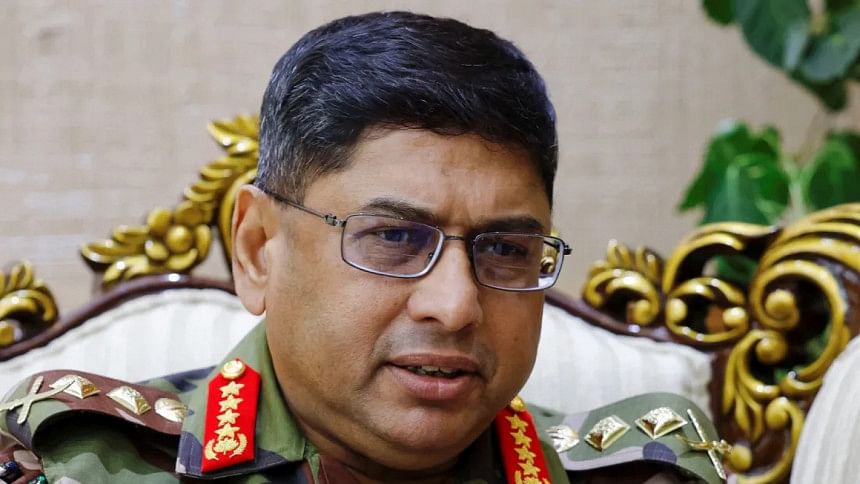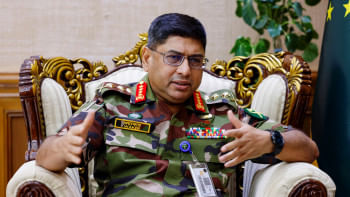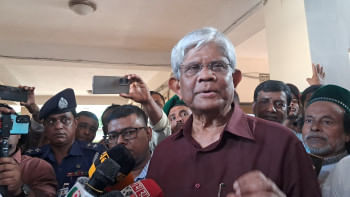Army chief mentions interim govt time frame for the first time

One year and a half. That is when some sort of a democratic process should begin, said the army chief during an interview with Reuters. While there is no further elaboration of what General Waker-uz-Zaman meant by "democratic process", it is the first time that a concrete timeframe has been mentioned by a key player.
"If you ask me, then I will say that should be the time frame by which we should enter into a democratic process," he told the international news agency, where it is evident that it was the general's opinion.
The four-star general's rare interview comes within a week of the army being given temporary magistracy powers. Although just for two months, this government move had given rise to much speculation at home and abroad. But General Waker further clarified that the army would be behind the interim government through its tenure till Chief Adviser Muhammad Yunus completes his reforms. The government has initiated reforms of judiciary, police, Election Commission, administration, financial institutions and the constitution.
"I will stand beside him. Come what may. So that he can accomplish his mission," Reuters quoted Zaman saying, which was the first public announcement of the army's position as regards the interim government.
The army's refusal to apply force and subdue the people's uprising hastened the fall of former prime minister Sheikh Hasina's Awami League regime. While the police and ruling party cadres are blamed for shooting dead hundreds of protesters during the anti-quota and anti-government protests, the military mostly stood aside, and thus remains one of the few institutions that has survived the violent transition almost unsullied. Appointed as the army chief just weeks before Hasina fled, General Waker managed to allay apprehensions on account of him being related to the former prime minister and acted in public interest during the crucial hours of August 4 and August 5.
It was also the military that had stewarded the country through a delicate transition leading to the installation of an interim government headed by Nobel peace laureate and Grameen Bank founder Professor Muhammad Yunus on August 8, three days after Hasina fled Bangladesh leaving a power vacuum.
General Waker's pledge to extend his full cooperation for the Yunus-led interim government to attain its goals should leave no doubt that the military will be a stabilising factor helping the incumbent succeed in its mission. Full military support for the interim government that might have been implicit till now has just been solidified by the army chief.

 For all latest news, follow The Daily Star's Google News channel.
For all latest news, follow The Daily Star's Google News channel. 




Comments